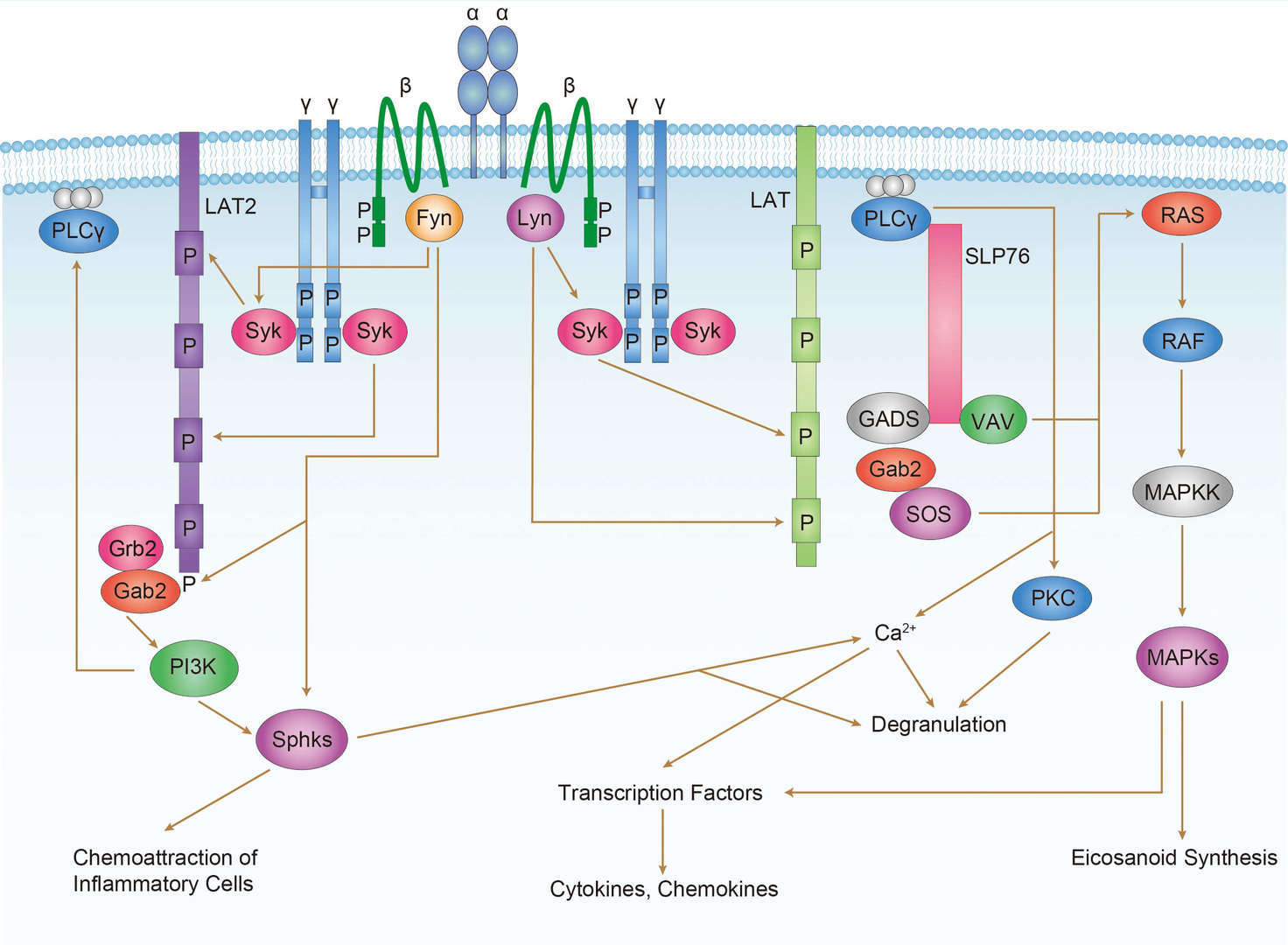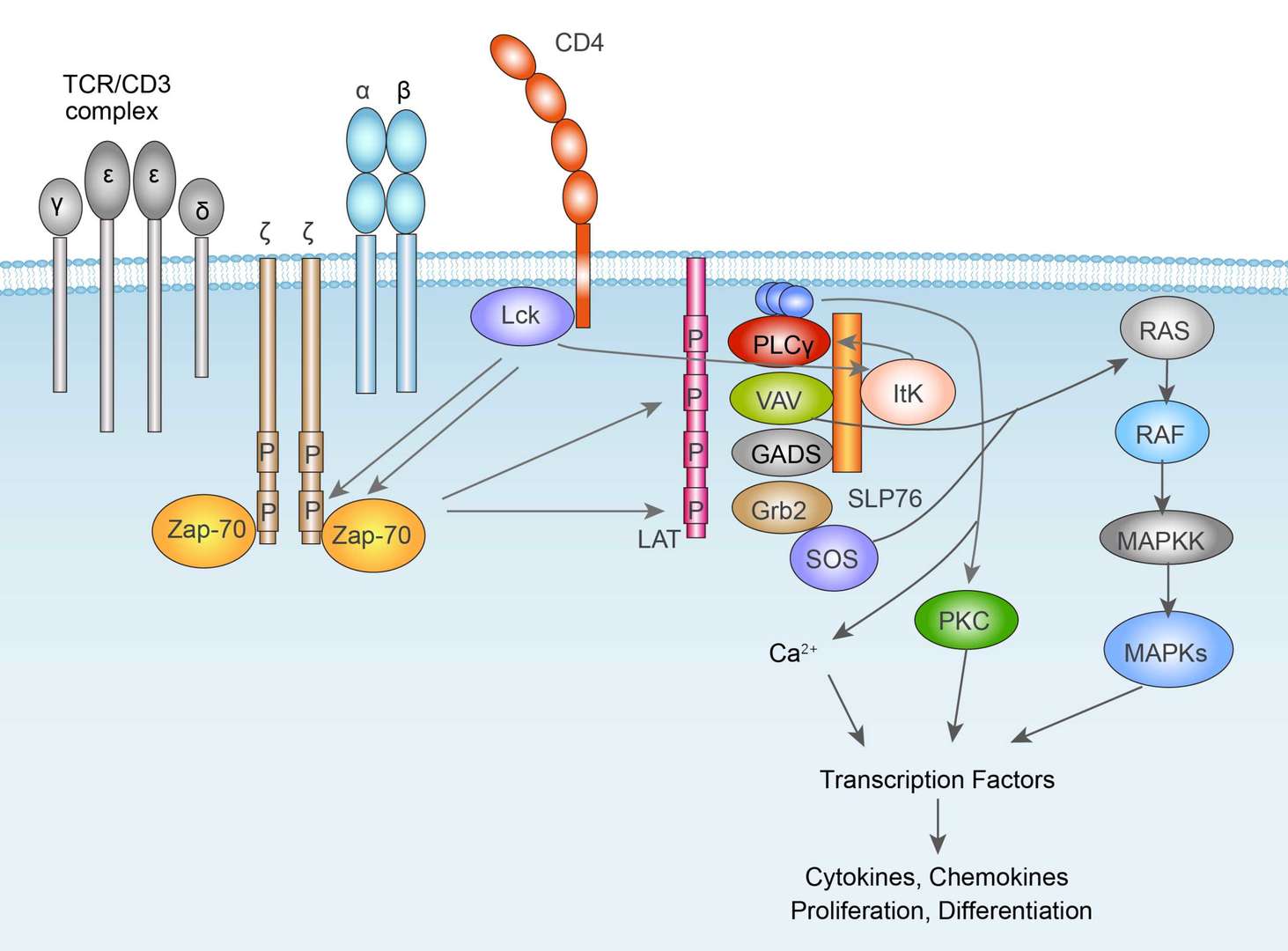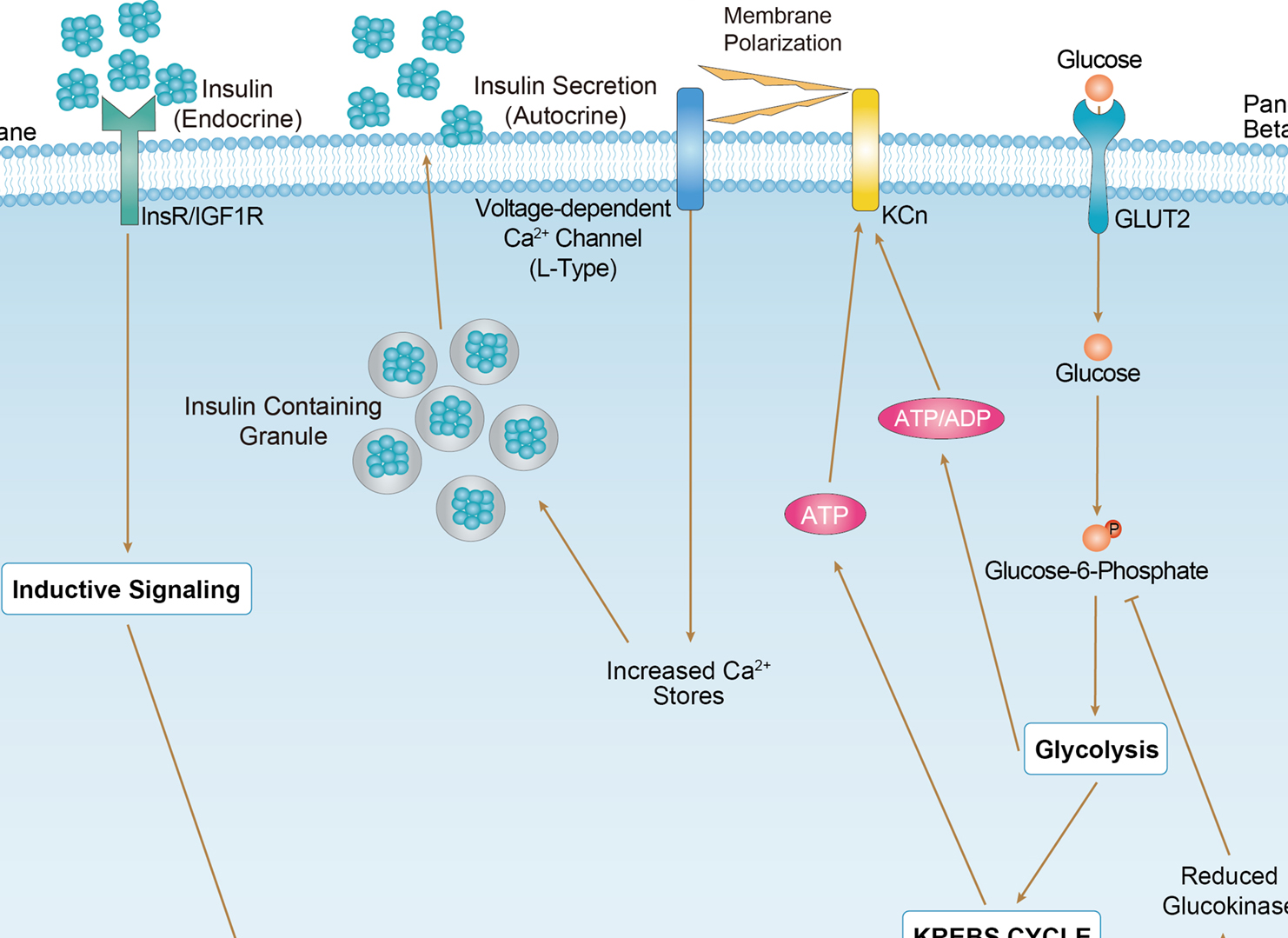CytoStream™ Rabbit Anti-MAPK9 Recombinant Antibody (VS13-YC702)
CAT#: VS13-YC702
The CytoStream™ Rabbit Anti-MAPK9 Recombinant Antibody is specific for human and mouse MAPK9. MAPK9, closely related to MAPK8, targets transcription factors to mediate gene expression. It's involved in UV-induced apoptosis via cytochrome c pathways and enhances p53 stability in nonstressed cells. It plays roles in T-cell differentiation, with various transcript variants found. The anti-MAPK9 antibody was developed and selected by our CytoStream™ platform and the mAb is recommended for use in flow cytometry staining (1/50-1/100).







Specifications
- Immunogen
- Recombinant human JNK2, aa 341-394.
- Host Species
- Rabbit
- Type
- Rabbit IgG
- Specificity
- Human and Mouse MAPK9
- Species Reactivity
- Human, Mouse
- Applications
- WB, ICC, IF, IHC-P, IP, FC
- Conjugate
- NONE
Product Property
- Clonality
- Monoclonal
- Purification
- Protein A purified
- Format
- Liquid
- Concentration
- Please refer to the vial label for the specific concentration.
- Buffer
- TBS (pH 7.4) containing 40% Glycerol and 0.05% BSA.
- Preservative
- 0.05% Sodium azide
- Storage
- Store at 4°C short term (1-2 weeks). Aliquot and store at -20°C long term. Avoid repeated freeze/thaw cycles.
- Shipping
- Shipping with ice pack.
Applications
- Application Notes
- Western blot (WB): 1/1000-1/5000
Immunocytochemistry (ICC): 1/50-1/200
Immunohistochemistry-paraffin (IHC-P): 1/50-1/200
Flow cytometry (FC): 1/50-1/100
Target
- Alternative Names
- Mitogen-Activated Protein Kinase 9; Stress-Activated Protein Kinase JNK2; Stress-Activated Protein Kinase 1a; C-Jun N-Terminal Kinase 2; MAP Kinase 9; EC 2.7.11.24; Jun Kinase; MAPK 9; JNK-55; SAPK1a; PRKM9;
- Gene ID
- 5601
- UniProt ID
- P45984
- Long Name
- Mitogen-Activated Protein Kinase 9
- Sequence Similarities
- Belongs to the protein kinase superfamily. CMGC Ser/Thr protein kinase family. MAP kinase subfamily.
- Cellular Localization
- Nucleus; Cytoplasm
- Protein Refseq
- NP_001128516.1; NP_001295173.1; NP_002743.3
- Function
- Serine/threonine-protein kinase involved in various processes such as cell proliferation, differentiation, migration, transformation and programmed cell death. Extracellular stimuli such as pro-inflammatory cytokines or physical stress stimulate the stress-activated protein kinase/c-Jun N-terminal kinase (SAP/JNK) signaling pathway. In this cascade, two dual specificity kinases MAP2K4/MKK4 and MAP2K7/MKK7 phosphorylate and activate MAPK9/JNK2. In turn, MAPK9/JNK2 phosphorylates a number of transcription factors, primarily components of AP-1 such as JUN and ATF2 and thus regulates AP-1 transcriptional activity. In response to oxidative or ribotoxic stresses, inhibits rRNA synthesis by phosphorylating and inactivating the RNA polymerase 1-specific transcription initiation factor RRN3. Promotes stressed cell apoptosis by phosphorylating key regulatory factors including TP53 and YAP1. In T-cells, MAPK8 and MAPK9 are required for polarized differentiation of T-helper cells into Th1 cells. Upon T-cell receptor (TCR) stimulation, is activated by CARMA1, BCL10, MAP2K7 and MAP3K7/TAK1 to regulate JUN protein levels. Plays an important role in the osmotic stress-induced epithelial tight-junctions disruption. When activated, promotes beta-catenin/CTNNB1 degradation and inhibits the canonical Wnt signaling pathway. Participates also in neurite growth in spiral ganglion neurons. Phosphorylates the CLOCK-ARNTL/BMAL1 heterodimer and plays a role in the regulation of the circadian clock (PubMed:22441692).
Phosphorylates POU5F1, which results in the inhibition of POU5F1's transcriptional activity and enhances its proteosomal degradation (By similarity).
MAPK9 isoforms display different binding patterns: alpha-1 and alpha-2 preferentially bind to JUN, whereas beta-1 and beta-2 bind to ATF2. However, there is no correlation between binding and phosphorylation, which is achieved at about the same efficiency by all isoforms. JUNB is not a substrate for JNK2 alpha-2, and JUND binds only weakly to it.
Customer Review
There are currently no Customer reviews or questions for VS13-YC702. Click the button above to contact us or submit your feedback about this product.
Submit Your Publication
Published with our product? Submit your paper and receive a 10% discount on your next order! Share your research to earn exclusive rewards.
Related Signaling Pathways
Related Diseases
Downloadable Resources
Download resources about recombinant antibody development and antibody engineering to boost your research.
Product Notes
This is a product of Creative Biolabs' Hi-Affi™ recombinant antibody portfolio, which has several benefits including:
• Increased sensitivity
• Confirmed specificity
• High repeatability
• Excellent batch-to-batch consistency
• Sustainable supply
• Animal-free production
See more details about Hi-Affi™ recombinant antibody benefits.
Datasheet
MSDS
COA
Certificate of Analysis LookupTo download a Certificate of Analysis, please enter a lot number in the search box below. Note: Certificate of Analysis not available for kit components.
Protocol & Troubleshooting
We have outlined the assay protocols, covering reagents, solutions, procedures, and troubleshooting tips for common issues in order to better assist clients in conducting experiments with our products. View the full list of Protocol & Troubleshooting.
Secondary Antibody
- CAT
- Product Name
Isotype Control
- CAT
- Product Name
See other products for "MAPK9"
Select a product category from the dropdown menu below to view related products.
| CAT | Product Name | Application | Type |
|---|---|---|---|
| MOB-3199z | Mouse Anti-MAPK9 Recombinant Antibody (clone 37H7) | ELISA, IHC, WB | Mouse IgG1, κ |
| CAT | Product Name | Application | Type |
|---|---|---|---|
| MOB-1001CT | Recombinant Mouse anti-Human MAPK9 Monoclonal antibody (EML1864) | WB |
| CAT | Product Name | Application | Type |
|---|---|---|---|
| BRD-0346MZ | Chicken Anti-MAPK9 Polyclonal IgY | WB | Chicken antibody |
| CAT | Product Name | Application | Type |
|---|---|---|---|
| MOR-2160 | Hi-Affi™ Recombinant Rabbit Anti-MAPK9 Monoclonal Antibody (DS2160AB) | WB, IP, IHC-P, ICC, FC | IgG |
| CAT | Product Name | Application | Type |
|---|---|---|---|
| MRO-0885-CN | Recombinant Rabbit Anti-MAPK9 Monoclonal Antibody (CBACN-331) | WB, IF, IHC, IP, FC | Rabbit IgG |
| CAT | Product Name | Application | Type |
|---|---|---|---|
| VS3-CJ970 | Rabbit Anti-MAPK9 Recombinant Antibody (VS3-CJ970) | WB, ICC, IHC, IP, FC | Rabbit IgG |
| CAT | Product Name | Application | Type |
|---|---|---|---|
| VS3-FY892 | Recombinant Rabbit Anti-MAPK9 Antibody (clone R02-9H4) | WB, IHC-P, IP | Rabbit IgG |
| CAT | Product Name | Application | Type |
|---|---|---|---|
| VS-0724-YC1099 | AbPlus™ Anti-MAPK9 Magnetic Beads (VS-0724-YC1099) | IP, Protein Purification |
| CAT | Product Name | Application | Type |
|---|---|---|---|
| VS-1024-XY293 | Rabbit Anti-NHP MAPK9 Recombinant Antibody (VS-1024-XY293) | WB, IP | Rabbit IgG |
| CAT | Product Name | Application | Type |
|---|---|---|---|
| VS-0525-XY4247 | Anti-MAPK9 Immunohistochemistry Kit | IHC |
| CAT | Product Name | Application | Type |
|---|---|---|---|
| VS-0525-XY4248 | Anti-Mouse MAPK9 Immunohistochemistry Kit | IHC |
Popular Products

Application: WB, FuncS, IF, Neut, ELISA, FC, IP

Application: ELISA, IP, FC, FuncS, Neut, IF, ICC

Application: Neut, ELISA, IF, IP, FuncS, FC, ICC

Application: IF, IP, Neut, FuncS, ELISA, FC, WB

Application: ELISA, Neut, IF, IP, FC, FuncS

Application: WB, ELISA, IP, FC, FuncS, Neut, IF

Application: FC, IP, ELISA, Neut, FuncS, IF, WB

Application: IP, IF, FuncS, FC, Neut, ELISA, ICC

Application: IF, IP, Neut, FuncS, ELISA, FC, WB

Application: ELISA, FC, IP, FuncS, IF, Neut, ICC

Application: Neut, ELISA, IF, IP, FuncS, FC, ICC

Application: WB, ELISA, FC, IP, FuncS, IF, Neut

Application: IF, IP, Neut, FuncS, ELISA, FC, ICC

Application: FuncS, IF, Neut, ELISA, FC, IP, ICC

Application: ELISA, Neut, FuncS
For research use only. Not intended for any clinical use. No products from Creative Biolabs may be resold, modified for resale or used to manufacture commercial products without prior written approval from Creative Biolabs.
This site is protected by reCAPTCHA and the Google Privacy Policy and Terms of Service apply.










 FcεR1 Signaling Pathway
FcεR1 Signaling Pathway
 TCR Signaling Pathway
TCR Signaling Pathway
 Maturity Onset Diabetes of the Young
Maturity Onset Diabetes of the Young







